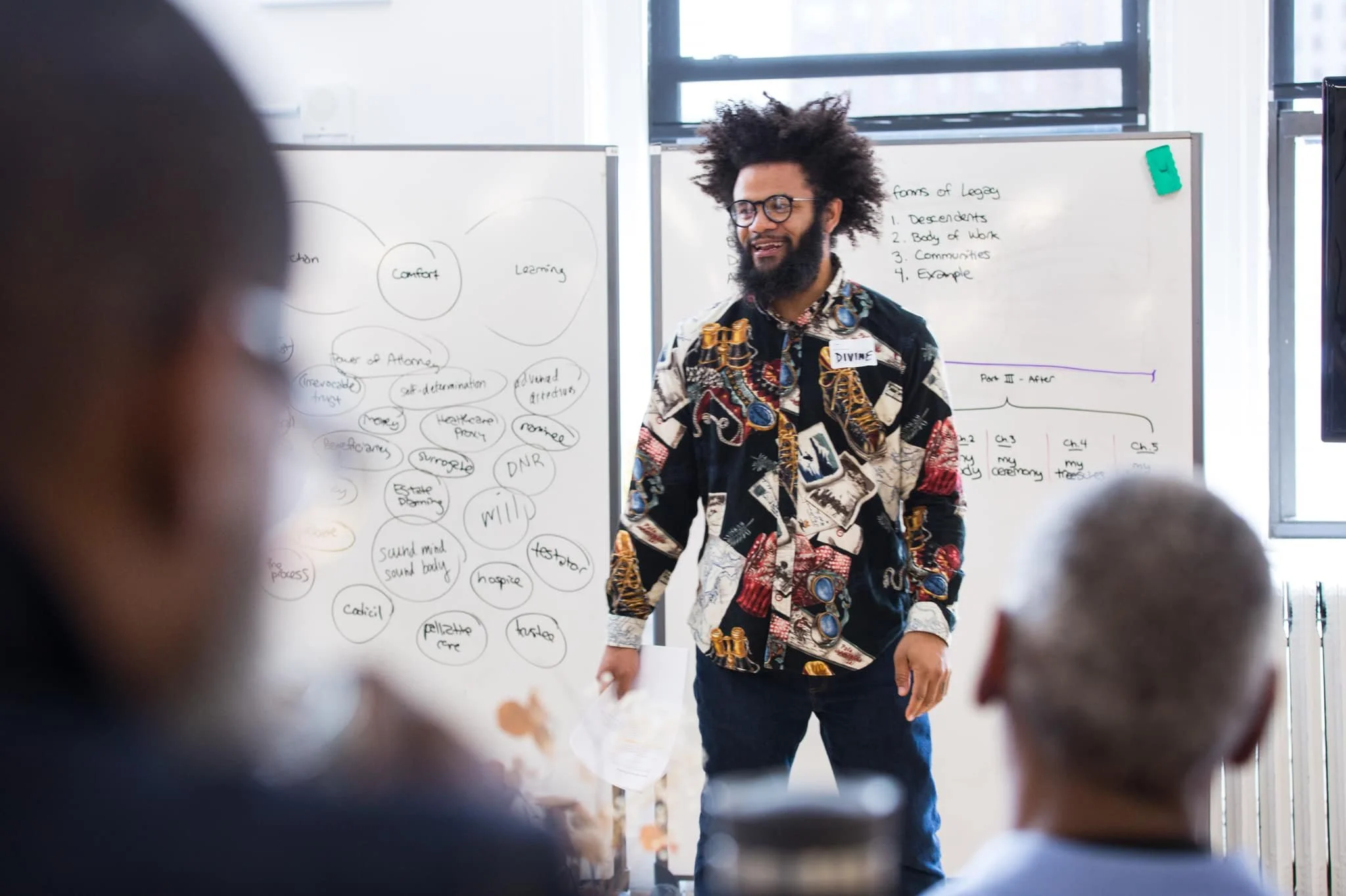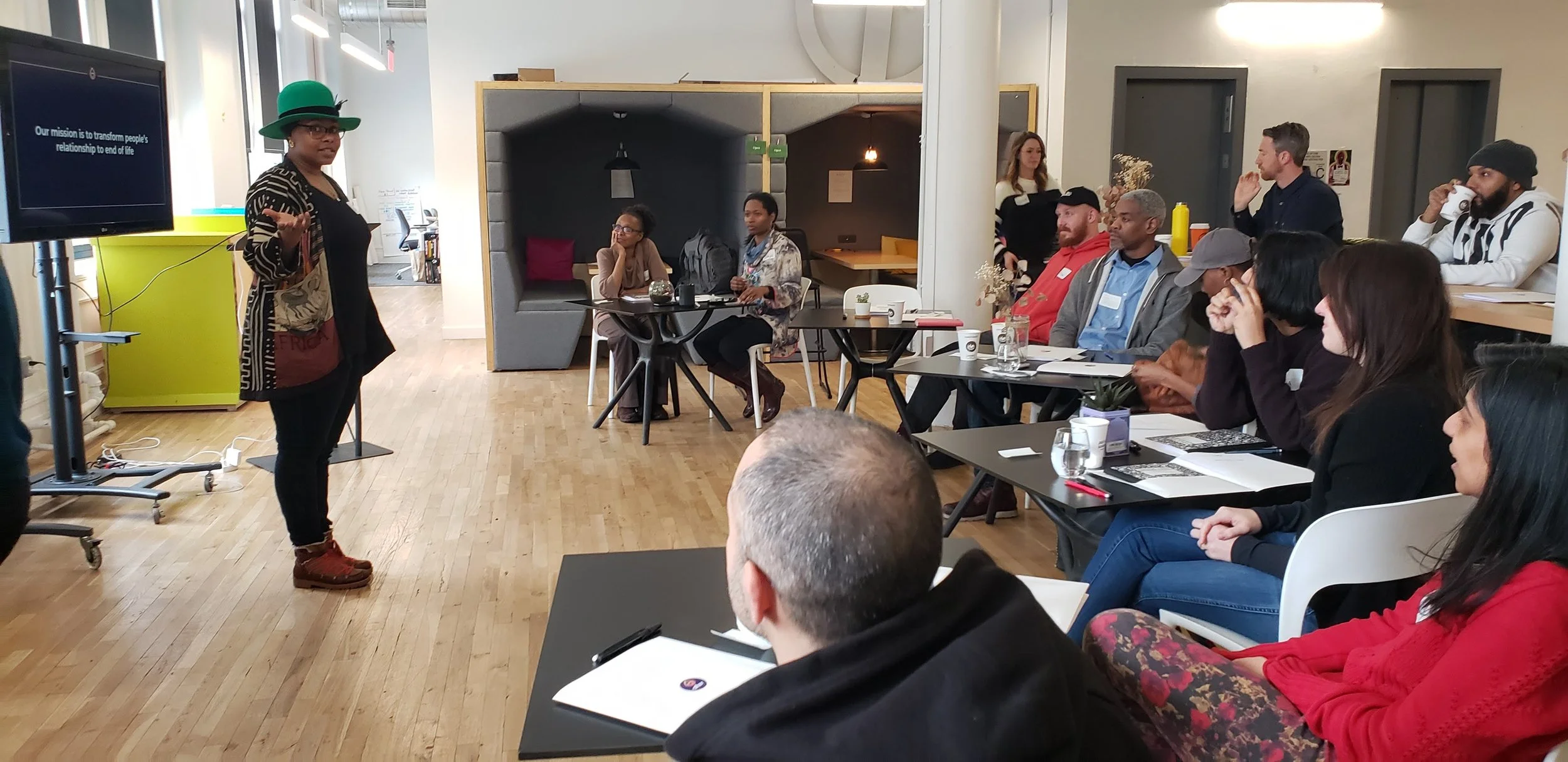
YEAR: 2018
Partners
Sallomé Hralima, Joseph Weissgold, Future Project collaborators
Location
New York, San Francisco, and international pilot cities
Context / Challenge
End-of-life conversations are often avoided, leaving individuals and families severely unprepared in moments of crisis. Traditional services felt clinical, disconnected, and reactive rather than proactive and human-centered. The clear lack of compassionate systems for loss and legacy planning underscored the urgent need to redesign how we process mortality—both personally and within corporate wellness.
Role
Worldbuilder, Co-founder, and Social Imagineer — focused on building invisible and visible spaces where creativity, care, and connection can thrive, even around the most difficult topics.
What We Built
We launched After — a platform and community designed to help individuals and organizations rethink end-of-life planning. After is part platform, part community ritual, with offerings such as: After Parties (intimate gatherings where people reflect on mortality, share stories, and build comfort) and After School (organizational workshops where employees are guided through wills, healthcare proxies, and legacy planning, often resulting in notarized documents or a clear plan).
Approach / Methods
Human-centered design and social innovation; ritual-based gatherings that normalize difficult conversations; and the integration of practical/legal support with emotional care. This work is rooted in creating resilience and nurturing community through shared vulnerability.
Impact / Outcomes
Created safe and imaginative spaces for grief, planning, and legacy conversations in multiple cities worldwide. Helped participants process loss while ensuring their families would be supported and informed. Introduced companies to a new paradigm: bereavement and legacy planning as a critical wellness benefit that strengthens employee loyalty and trust, positioning After as a pioneer at the cutting edge of organizational culture.
Story
“Observing how clinical and disconnected end-of-life options were, we realized none of the existing options felt human — so we began creating a platform where intentionality, ritual, and human-centered design could reshape how we face mortality.”
Tags
End-of-Life Planning, Social Innovation, Community Ritual, Workplace Culture, Legacy Design, Wellness






